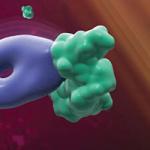
Rebecca J. Brown, M.D., M.H.Sc.
Senior Investigator
Diabetes, Endocrinology, & Obesity Branch
NIDDK
Research Topics
Research Goal
Our goal is to understand the basic mechanisms regulating energy metabolism in humans. We use rare diseases as models to understand perturbations in pathways regulating energy metabolism and apply what we learn from rare diseases to common diseases and conditions such as obesity and the metabolic syndrome.
Current Research
Our group studies pathophysiology and clinical therapeutics for rare disorders of extreme insulin resistance including lipodystrophy, mutations of the insulin receptor, and autoimmune conditions affecting insulin signaling. We are particularly interested in understanding the mechanisms of action of the adipokine, leptin, in improving metabolic disease in lipodystrophy.
Applying our Research
We conduct clinical trials to study new treatments for rare diseases, thereby improving the health of individuals with these rare conditions. In addition, we hope to apply what we learn from treating rare diseases to improve health in people with common conditions.
Need for Further Study
Further study is needed to understand the mechanism of action of leptin in treatment of lipodystrophy and other disorders of extreme insulin resistance.
Biography
- Lasker Tenure Track Investigator, NIDDK, NIH, 2015-present
- Assistant Clinical Investigator, NIDDK, NIH, 2012–2015
- M.H.Sc., Duke University, 2011
- Senior Fellow, NIDDK, NIH, 2008–2012
- Fellow, NICHD, NIH, 2005–2008
- Resident, Rainbow Babies and Children’s Hospital, 2002–2005
- M.D., Mayo Medical School, 2002
Selected Publications
- Brown RJ, Valencia A, Startzell M, Cochran E, Walter PJ, Garraffo HM, Cai H, Gharib AM, Ouwerkerk R, Courville AB, Bernstein S, Brychta RJ, Chen KY, Walter M, Auh S, Gorden P. Metreleptin-mediated improvements in insulin sensitivity are independent of food intake in humans with lipodystrophy. J Clin Invest. 2018;128(8):3504-3516.
- Sekizkardes H, Chung ST, Chacko S, Haymond MW, Startzell M, Walter M, Walter PJ, Lightbourne M, Brown RJ. Free fatty acid processing diverges in human pathologic insulin resistance conditions. J Clin Invest. 2020;130(7):3592-3602.
- Brown RJ, Araujo-Vilar D, Cheung PT, Dunger D, Garg A, Jack M, Mungai L, Oral EA, Patni N, Rother KI, von Schnurbein J, Sorkina E, Stanley T, Vigouroux C, Wabitsch M, Williams R, Yorifuji T. The Diagnosis and Management of Lipodystrophy Syndromes: A Multi-Society Practice Guideline. J Clin Endocrinol Metab. 2016;101(12):4500-4511.
- Baykal AP, Parks EJ, Shamburek R, Syed-Abdul MM, Chacko SK, Cochran E, Startzell M, Gharib AM, Ouwerkerk R, Abd-Elmoniem KZ, Walter PJ, Walter M, Muniyappa R, Chung ST, Brown RJ. Leptin decreases de novo lipogenesis in patients with lipodystrophy. JCI Insight. 2020.
- Diker-Cohen T, Cochran E, Gorden P, Brown RJ. Partial and generalized lipodystrophy: comparison of baseline characteristics and response to metreleptin. J Clin Endocrinol Metab. 2015;100(5):1802-10.
Related Scientific Focus Areas
This page was last updated on Thursday, August 7, 2025

